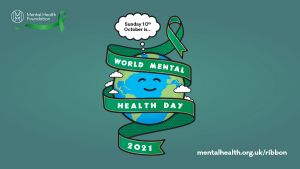 World mental health day is coming on October 10th, and theme for this year’s event is ‘Mental Health in an Unequal World’. The pandemic has confirmed that there are significant inequalities in health provision throughout the UK, and indeed the wider world.
World mental health day is coming on October 10th, and theme for this year’s event is ‘Mental Health in an Unequal World’. The pandemic has confirmed that there are significant inequalities in health provision throughout the UK, and indeed the wider world.
This inequality persists in spite of mental health being a universal issue. Several years ago, Teresa May said in her speech at the Downing Street reception, “we all know someone who has been affected by mental health problems – whether a family member, colleague of a friend”. Having money, power, or privilege doesn’t stop a person from experiencing mental health issues. It does affect their likelihood of receiving effective help.
There is still not enough recognition within the medical community or enough resources. People who do ask for treatment do not receive the care that they need in a timely manner. Despite the prevalence of mental health problems, the average global spending on it is only 2.8% of a government’s health budget.
Research has shown repeatedly that the key to positive outcomes for people struggling with mental health issues is early intervention. there are currently 1.5 million people waiting for services, and research in 2020 found that those living with severe mental illness often waited up to two years before receiving treatment. The National Council for Hypnotherapy (NCH) states that it’s important to reduce anxiety in one’s life as research shows that prolonged exposure to the ‘stress hormone’ cortisol can cause memory problems, a weakened immune system and many other negative health outcomes.
If you or someone you know is not coping with their stress levels or having other mental health problems it is important to find them someone they can talk to.
In clinical hypnotherapy, the underlying emotions that feed the anxiety or depression are addressed and effective hypnotherapy can bring fast and effective relief. The NCH has a register of over 2,000 therapists across the UK. Use the NCH directory to find a therapist near you.
